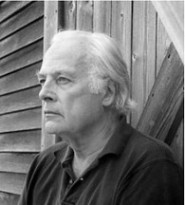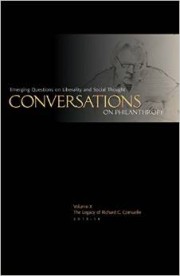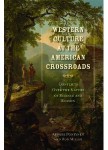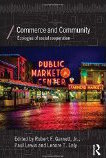Good to see real debate emerging
It was good to read Scott Walter’s recent coverage of the ACR meeting at Philanthropy Daily:
Moderator Sandra Swirski of ACR reiterated the need for the audience to help move Congress from the view of the charitable tax deduction as a “subsidy” of good works by the government to the tax-base theory advocated by Woolf: “If you give it away, it’s simply not income.” The former view, Swirski noted, means that Congress could “dial” the subsidy up and down as it pleases, while the tax-base theory means Congress has no right to money charitably donated, period.
The final panel began with a stark challenge to received thinking in the charitable world, and wherever you come down on these issues, we can all applaud the ACR’s guts for letting such unconventional opinions be heard and debated. The panel promised “Two Perspectives on Tax Reform and Private Giving Incentives,” and it opened with a challenge from Stephen Moore, an economist formerly with theWall Street Journal and now at the Heritage Foundation. Stressing that a fast-growing economy is the greatest spur to charitable giving, Moore called for eliminating all tax deductions and moving to the simplest possible tax system with the lowest possible rates—reforms which he believes will result in both a growing economy and a flourishing nonprofit sector.
To bolster his argument, Moore cited the 1980s, which were one of the best times for giving even though the value of the charitable deduction was plunging as top marginal tax rates declined from 70 percent to 28 percent. Today, on the other hand, we see the nonprofit sector growing somewhat, even as the for-profit sector struggles to maintain minimal growth. An exception is seen, however, in Florida and Texas, two states whose economies are booming, as is their charitable giving, even though these states have no income tax from which to deduct such giving.
Howard Husock, Moore’s sparring partner, explained that he found Moore’s arguments appealing in theory but potentially dangerous in practice, given how unlikely the country is to move toward the radically simplified tax code Moore desires. It’s critical, Husock argued, that when approaching public policy we have the goal of keeping charitable giving at least steady, if not higher. Husock decried the President’s proposed cap on deductions of 28 percent. “We can be pretty darn sure that this would decrease giving,” he insisted, especially in “blue” states with high tax rates, and he objected to treating the charitable deduction the same as deductions like that for mortgage interest.
Those interested in this topic might check out the 2012 symposium in Conversations on Philanthropy.
Those currently researching and writing on these topics should consider our Call for Papers!




